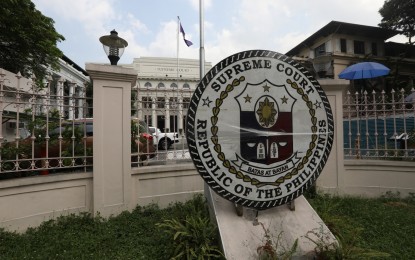
MANILA – The Supreme Court (SC) has ruled that complaints against an employer's failure to remit collected union member dues was unfair labor practice, not an intra-union dispute.
In a decision published online Wednesday, the Supreme Court’s First Division granted the petition filed by South Cotabato Integrated Port Services Incorporated (SCIPSI) questioning rulings by the Court of Appeals (CA) which upheld the jurisdiction of the Mediator-Arbiter (Med-Arbiter) over a case involving the non-remittance by the employer of union dues.
In 2010, Makar Port Labor Organization (MPLO), through its President Mario Marigon (Marigon), filed before the Department of Labor and Employment (DOLE) a petition for unfair labor practice against SCIPSI. MPLO was the exclusive bargaining agent of the rank-and-file employees of SCIPSI from Oct. 12, 1999 to Feb. 2007.
Marigon claimed that SCIPSI withheld collections of monthly dues deducted from the salary of MPLO members from August 2006 to February 2007.
In an Order, Med-Arbiter Jasmin M. Demetillo subsequently directed SCIPSI to release the unremitted union dues in favor of MPLO.
On appeal, the Bureau of Labor Relations (BLR) upheld the Med-Arbiter’s jurisdiction as the case involved not unfair labor practice. This was affirmed by the CA, prompting SCIPSI to file the present petition before the Court.
In resolving the petition, the Court stressed that jurisdiction over the subject matter is determined by the allegations in the complaint, irrespective of whether the plaintiff is entitled to recover his claims.
The Court added that if the allegations in the complaint involve unfair labor practice, which generally refers to acts that violate the worker’s right to self-organization, it is the Labor Arbiter who has jurisdiction pursuant to Article 224 of the Labor Code.
The Court thus held that the allegations did not involve an intra-union dispute but unfair labor practice, adding that SCIPSI’s non-compliance is in the form of an interference with the right of its rank-and-file employees to self-organization. (PNA)
